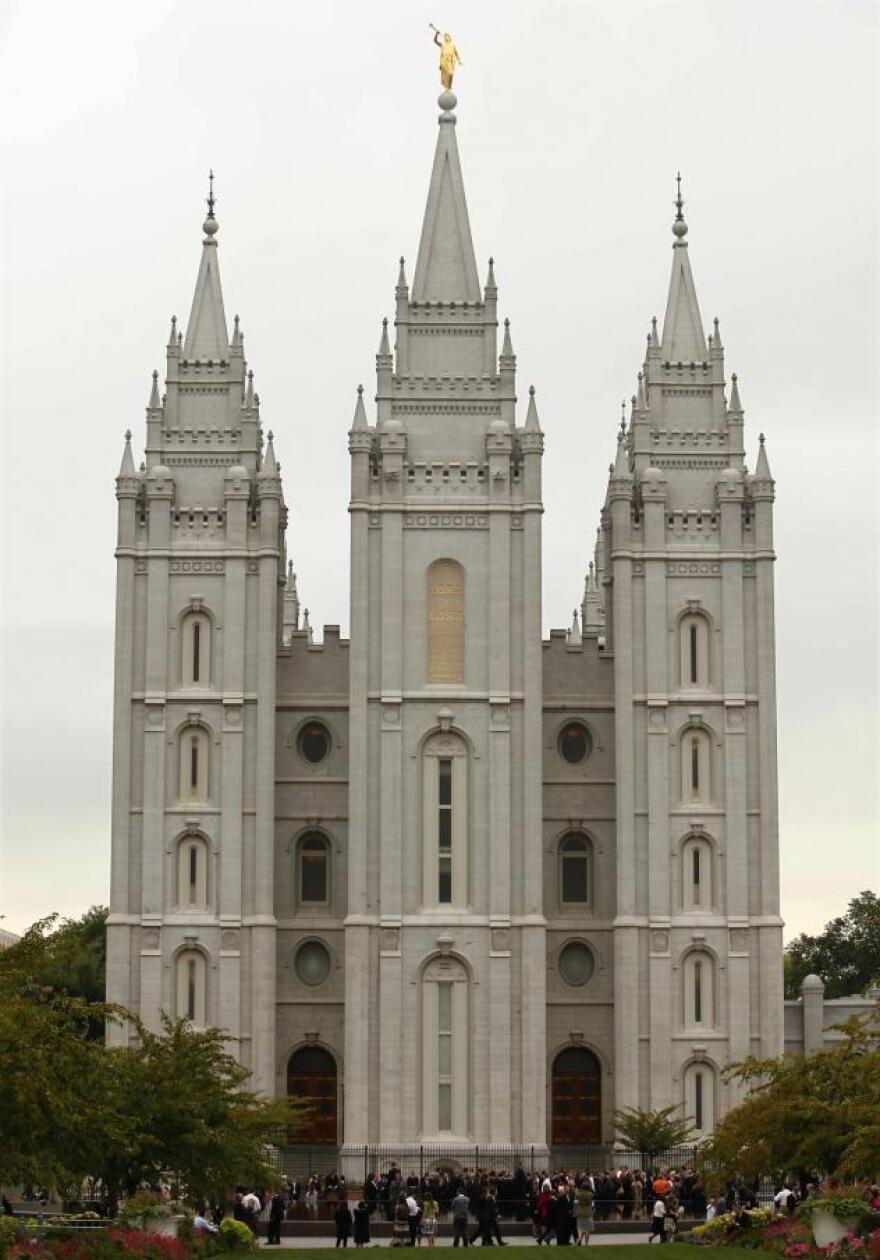LAS VEGAS (AP) — Nevada's influential Mormons weren't taken for granted in the campaign for the state's Republican presidential caucuses Tuesday.
Members of the Church of Jesus Christ of Latter-day Saints only account for 4 percent to 5 percent of the population in Nevada, where the first white settlers were Mormon and the faith's bastion sits across the state line in Utah. But they are apt to turn out and made up about a quarter of the electorate in the 2012 GOP caucuses won by Mitt Romney, a Mormon, according to voter surveys.
They were expected to wield an outsized influence Tuesday after some prodding from the pulpit and after influential Mormons in the state took sides, mostly for Florida Sen. Marco Rubio. Lt. Gov. Mark Hutchison, an active member of the church, is chairman of Rubio's Nevada campaign.
Rubio was part of the church for a few childhood years when he lived in Las Vegas and has relatives who still belong. One, Mo Denis, a state senator, is his cousin.
Rubio now is a practicing Roman Catholic and his supporters say he shares a religious commitment and values that transcend denominational barriers.
Ted Cruz, too, played for Mormon support, particularly to a subset of conservatives most concerned that changes on the Supreme Court could erase religious liberties. He often campaigned with conservative broadcaster Glenn Beck, a Mormon, who introduced Cruz at a weekend rally in Henderson with a half-hour speech warning that people of faith need to rise up because "the Constitution is hanging by a thread."
"That is really one of our catch phrases," said Helen LeBrett, 57, a Mormon who came from Healdsburg, California, to help Cruz in the Nevada campaign. "It's supposed to be a prophecy, and I really feel like we're living in the middle of it."
The galvanized Mormon vote that was a notable part of Romney's Nevada caucus wins in 2008 and 2012 was expected to split among several candidates. But locking in support of dependable Mormon voters remains a prize in a low-turnout caucus where only about 33,000 participated in 2012.
Campaigns, most notably Rubio's, heightened their credibility by placing Mormon elected officials at the top of their Nevada operations. Donald Trump, the national front-runner, did not have as visible an outreach to Nevada Mormons. In heavily Mormon Utah, however, his campaign announced endorsements from four legislators.
After Jeb Bush dropped out on Saturday, his most prominent Nevada Mormon supporters, U.S. Sen. Dean Heller and Republican Assembly Majority Leader Paul Anderson, endorsed Rubio. So did others in the state.
Such endorsements could steer votes in the close-knit Mormon community toward Rubio.
As David Wray, a Mormon who was a field director for the Ben Carson campaign, put it: "Mormons, as with any faith where there's any one person who's respected, might say, 'Oh he's a lieutenant governor and he knows a lot about our faith and values. We should look at that candidate as well.'"
And at a simpler level, the caucus structure thrives off the church's organizational sophistication.
The church encourages "family home evenings," or activities among families once a week, and is divided into "wards" based on geography. Wray said that in a volunteer capacity he organized several caucus training sessions for youth groups and "singles wards" made up of young Mormon singles.
Such arrangements provide for a family home evening as well as a way to address the spiritual obligation Mormons feel to shape the political process.
According to a biography, Rubio as a child converted to the church with enthusiasm, as did his mother and his sister, Veronica. As an adolescent or young teen, though, he persuaded them to re-embrace Catholicism, Manuel Roig-Franzia wrote in "The Rise of Marco Rubio." He wrote in the 2012 book that Rubio and his family members never asked for their names to be removed from the church's rolls, meaning they may still be counted as Mormons by the church.

